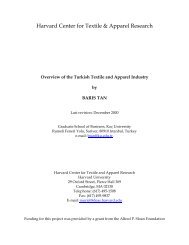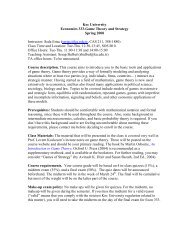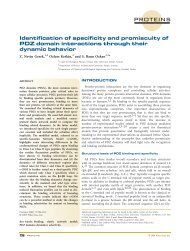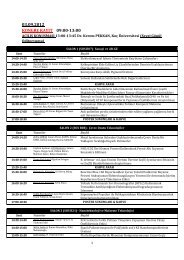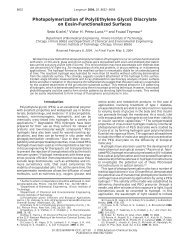Comment on Hekman's "Truth and Method: Feminist Standpoint ...
Comment on Hekman's "Truth and Method: Feminist Standpoint ...
Comment on Hekman's "Truth and Method: Feminist Standpoint ...
Create successful ePaper yourself
Turn your PDF publications into a flip-book with our unique Google optimized e-Paper software.
COMMENT<br />
Collins<br />
or st<strong>and</strong>point are the same. For many c<strong>on</strong>temporary feminists, voicing<br />
their disc<strong>on</strong>tent with oppressi<strong>on</strong> is sufficient-actually changing instituti<strong>on</strong>al<br />
power relati<strong>on</strong>s seems less important. Gaining voice <strong>on</strong>ly to lose it<br />
again to a st<strong>and</strong>point theory that replaces the freedom of individually<br />
negotiated friendships or sisterhood with the obligati<strong>on</strong>s of race, class,<br />
<strong>and</strong> gender "families" seems unacceptable to those with the means to<br />
escape.<br />
St<strong>and</strong>poin theory argues that ideas matter in systems of power. In this<br />
sense, st<strong>and</strong>points may be judged not <strong>on</strong>ly by their epistemological c<strong>on</strong>tributi<strong>on</strong>s<br />
but also by the terms of their participati<strong>on</strong> in hierarchical power<br />
relati<strong>on</strong>s. Do they inherently explain <strong>and</strong> c<strong>on</strong>d<strong>on</strong>e injustice, or do they<br />
challenge it? Do they participate in relati<strong>on</strong>s of rule via creating knowledge,<br />
or do they reject such rule by generating cultures of resistance? Extracting<br />
any claims about knowledge from the power relati<strong>on</strong>s in which<br />
they are embedded violates the basic premise of st<strong>and</strong>point theory because<br />
such theory exists primarily to explicate these power relati<strong>on</strong>s.<br />
Thus, attempts to take the knowledge while leaving the power behind<br />
inadvertently operate within the terrain of privileged knowledge. While I<br />
respect postmodern c<strong>on</strong>tributi<strong>on</strong>s in dec<strong>on</strong>structing languages of power,<br />
st<strong>and</strong>poin theory encompasses much more than changing the "language<br />
game of politics" (363). Oppressi<strong>on</strong> is not a game, nor is it solely about<br />
language-for many of us, it still remains profoundly real.<br />
Department of African-American Studies<br />
University of Cincinnati<br />
Winter 1997 SIGNS 381<br />
This c<strong>on</strong>tent downloaded from 212.175.32.130 <strong>on</strong> Tue, 26 Mar 2013 07:55:02 AM<br />
All use subject to JSTOR Terms <strong>and</strong> C<strong>on</strong>diti<strong>on</strong>s



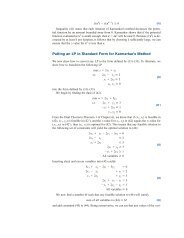
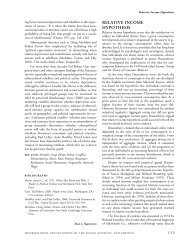
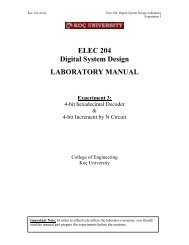
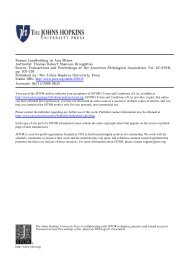
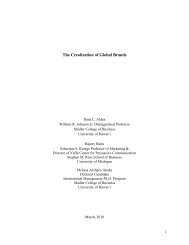

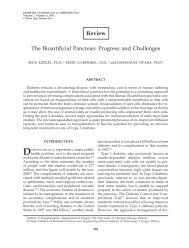
![]_[O](https://img.yumpu.com/10363126/1/190x138/-o.jpg?quality=85)
